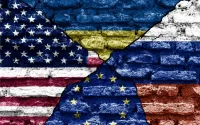For how much longer should we give those who run the global economy the benefit of the doubt? The International Monetary Fund has made the same "mistake" so many times that only one explanation appears to remain: it is engineering disaster.
The crises over which it has presided in Thailand, South Korea, Russia and Argentina are well-documented by Joseph Stiglitz, the former chief economist of the World Bank, among others. But we have, until now, lacked a comprehensive description of the way it worked in eastern Europe. A new book by the economist Pongrac Nagy* shows for the first time how the IMF smashed Hungary.
Communist economic management was hopeless: coercive, unaccountable, incompetent and wasteful. So when Hungary began to democratise in the late 1980s, it was plain that a new economic system was required. There were a number of options for transition. But before anyone had considered them, Hungary's naive and trusting new government was persuaded by the western powers that it had no alternative but to turn to the IMF.
Unless a country's economic policy is approved by the IMF, it cannot obtain foreign capital. Post-communist Hungary needed foreign capital for just one purpose: to help repay its enormous external debt. It could have applied, as many other countries had done, for debt relief, but the IMF, in the face of substantial evidence, told it that this would deter foreign investors. The only option was to implement the policies the IMF recommended.
It has just one set of policies. Governments must impose restraints upon the supply of money and credit, open the door to foreign capital, privatise state assets and cut public spending. It justifies these demands by persuading them that they are suffering from unmanageable debt and galloping inflation.
So in 1990 the IMF told Hungary that it was undergoing an inflationary crisis. Prices, it pointed out, had risen by 17% in 1989. In truth this rise was caused not by inflation (demand outstripping supply), but mainly by policy changes, such as the introduction of VAT and the abolition of subsidies. The IMF insisted on pretending that it was caused by excess demand.
The best way of reducing demand, the IMF maintained, was to restrict the amount of money the banks could lend. So between 1990 and 1996, the central bank ensured that the credit made available to businesses halved. The immediate and predictable result was that interest rates soared (to 50%) and businesses all over Hungary collapsed. As workers were sacked and wages were cut, consumer demand crashed. The IMF, Nagy writes, had "artificially plunged the Hungarian economy into its greatest-ever depression in peacetime". Between 1990 and 1993, Hungary's gross domestic product fell by 18%.
Far from curing inflation, this treatment caused it. Between 1993 and 1996, prices rose by 130%. This was not because demand was rising, but simply because it wasn't falling as fast as supply. But the IMF, once more, treated this new problem as if it was caused by runaway demand. It insisted on further economic restriction, which, predictably enough, pushed Hungary further into depression.
To ensure that Hungary serviced its debt, the IMF demanded that it cut every possible public service, and privatise every possible state asset. Entire economic sectors were flogged swiftly and cheaply, with the result that foreign corporations acquired complete market control. To ensure, in the government's words, "the desirable reallocation of income _ towards the business sector", Hungary was then obliged to introduce one of the most regressive tax policies in the world: 43% of government revenue came from taxes on consumption, but just 20% from income tax and 14% from business taxes.
All this was carried out, as all IMF programmes are, in conditions of total secrecy and institutional deceit. The lie the IMF tells is that it simply approves the "letter of intent" written by a government, in which the new economic policies are contained. This story relieves it of all responsibility for what happens. But the letter of intent is actually written by the IMF, and simply signed by the government. It is massive and detailed, and guides the economic and political life of the nation for between one and three years. It is entirely confidential. The only sight the people of Hungary have ever received of IMF policy was a leaked letter from a senior IMF official to the finance minister. His demands precisely matched the policies the government was implementing.
One-and-a-half million people (almost 30% of the workforce) lost their jobs. The incomes of those who stayed in work declined by 24%; pensions fell by 31%. By 1996, most people were living on or around subsistence levels. Public services shrivelled. Between 1989 and 1998, the crime rate rose by 166%. This, we must remember, was the result of a process almost universally described as "the triumph of capitalism".
Then, in 1996, suddenly, without announcement or explanation, the policy changed. The banks were permitted to start issuing credit again and the recession, as a result, came to an immediate end. Over the next four years, industrial production climbed by 45% and gross domestic product by 21%. Wages and pensions began to rise again.
The experiment, in other words, could not have had a clearer outcome. You apply the IMF's medicine and the economy collapses. You stop, and the economy recovers. It has been repeated often enough for us to trust the results. In Thailand, South Korea, Indonesia, Russia and Argentina, the IMF's financial liberalisation and forced restrictions led to economic crisis, which was relieved only as those restrictions were lifted. Those nations which refused to take the medicine, even though they were confronting almost identical conditions (Malaysia, China, Poland) prospered while their neighbours collapsed.
So why, knowing what the results will be, does the IMF keep applying the same formula for disaster? It can hardly be through lack of expertise. The truth is that the results happen to suit its sponsors very well. While the IMF works mainly in poor nations, it is controlled, through its one-dollar, one-vote system, entirely by the rich. As a result, as Stiglitz says, its programmes reflect "the interests and ideology of the western financial community".
Desmond Tutu once remarked that: "When the missionaries came to Africa, they had the Bible and we had the land. They said 'let us close our eyes and pray'. When we opened them, we had the Bible, and they had the land." The Hungarians were handed the Bible of economic orthodoxy by its missionaries. Through deceit and secrecy, the IMF ensured that their eyes were shut. By the time they opened them, foreign banks and corporations owned the economy; the public sector was giving way to foreign capital; structural unemployment had produced a pliant and desperate workforce. The IMF, in other words, had engineered the theft of an entire nation. How many more times does this need to happen before we can see what the game is?
* From Command to Market Economy in Hungary under the Guidance of the IMF, Akademiai Kiado, Budapest.






